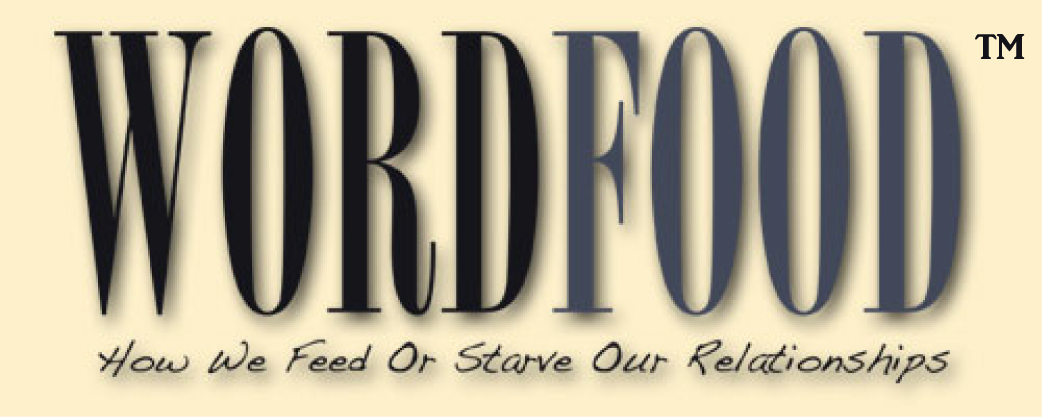Have you ever had someone say to you, “Talk to the hand?”
Has your girlfriend, boyfriend, spouse or coworker ever turned their back on you and refused to talk for an hour, day or even weeks as punishment for something that perhaps you may not realize you’ve done?
If this has happened to you, you’ve been put on what I call in the WordFood vernacular the Starvation Diet. No matter what you do, somebody’s not responding to you. You get the cold shoulder. No eye contact. No emails, tweets, phone calls. The silence is hurting you- possibly both of you, and if this is happening at the office, productivity may be going down if it’s a critical work relationship.
Someone is hurt here, and as time goes on, the chances are both of you feel hurt and angry. Your egos get involved and tend to want to be right. It gets harder to solve the problem the longer it goes on.
At some point, someone has to offer the olive branch. Bury the hatchet. It’s important to realize that others may be affected by this Starvation Diet: people in your family, community members, others at work. Consider the importance of letting go of your attachment to being right about whatever happened or didn’t happen, and the value of the relationship.
One of the best ways to bridge the gap is simply to apologize whether or not the problem was yours to begin with. Acknowledge your part of the issue. Look at the larger picture and what’s at stake, and offer to move beyond this and work things out. Suggest a way to proceed.
The offer of an apology is often the first step towards mending a broken relationship. Gently inquire about what’s wrong. Be gracious, courteous, caring. Show your appreciation for their feelings. Make no assumptions for what’s going on inside them, for we never really know. All we can do is offer our understanding and empathy.
When we are fed a Starvation Diet, we are often dealing with hurt or anger, possibly with fear. It’s up to us to make the first step. Offer a safe place for the other person to feel validated and a way forward, and see if you can start talking again. A little time, caring and compassion go a long way.

